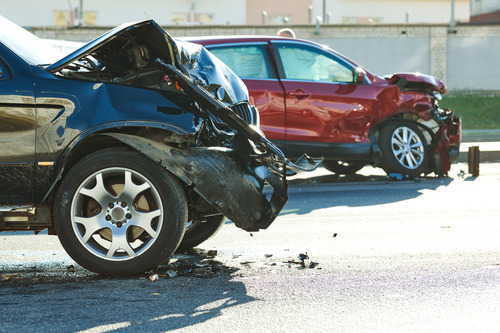After a car accident in Georgia, one of the first questions drivers ask is, will insurance pay for a rental car? If your vehicle is damaged and needs repairs, having access to a rental car can be essential. Whether insurance covers the cost depends on who was at fault and what type of coverage is included in your auto insurance policy.
In this blog, we explain when insurance will pay for a rental car after an accident in Georgia, how different types of coverage work, what steps to take during the claims process, and how working with an experienced Georgia car accident lawyer can help protect your rights if coverage is denied.
Understanding Rental Car Coverage in Georgia
After a car accident, many drivers ask if their car insurance will cover a rental car. This section explains the types of coverage that may apply under Georgia auto insurance policies.
What Is Rental Reimbursement Coverage?
Rental reimbursement coverage is optional insurance that helps pay for a rental car while your damaged vehicle is in the repair shop. It is not included in a basic auto insurance policy. If you have this coverage, your insurer will typically reimburse rental car expenses up to a daily and total limit. Common limits are $30 per day up to $900.
When Does Your Car Insurance Cover a Rental Car?
Your personal auto insurance policy may cover a rental car in several situations. If you caused the accident, you need rental reimbursement insurance to qualify for payment. If another driver caused the accident, their liability insurance should pay for your rental vehicle. This depends on proving fault and filing a claim with their insurance company. If the other driver is uninsured or underinsured, your own policy must include uninsured motorist property damage coverage for rental reimbursement to apply.
How to Know If You Have Rental Car Coverage
You can find rental reimbursement coverage details in your car insurance policy under the “Transportation Expenses” or “Rental Reimbursement” section. If you do not see it listed, you likely do not have this coverage. Contact your insurance agent for confirmation. Keep in mind that not all policies include rental car insurance automatically.
Credit Card and Other Supplemental Coverage
Some credit card companies offer rental car coverage if you use the card to pay for the rental. This coverage is usually secondary and may require you to first file a claim with your auto insurer. Rental car agencies also offer extra coverage such as collision damage waivers and supplemental liability insurance. These may duplicate coverage you already have through your personal car insurance.
Key Takeaways for Georgia Drivers
In Georgia, your ability to get a rental car covered depends on your insurance policy and who is at fault. Always review your personal car insurance policy and consider adding rental reimbursement coverage before an accident happens. Knowing your coverage limits can help reduce out-of-pocket rental car expenses after a crash.
When Will Insurance Pay for a Rental Car in Georgia?
Drivers often ask when insurance will pay for a rental car after an accident. The answer depends on who caused the accident and what coverage is included in the auto insurance policy.
If You Are Not at Fault
If another driver caused the accident, their liability insurance should cover your rental car costs. In Georgia, the at-fault driver is financially responsible for property damage, including the cost of a rental vehicle while your car is being repaired. This is based on Georgia’s at-fault insurance system under O.C.G.A. § 51-1-6. You must file a claim with the other driver’s insurance company and may need to wait for them to accept liability. It is important to get a police report and document all damages.
If You Are At Fault
If you caused the accident, your rental car reimbursement depends on your own policy. Insurance companies will only pay for a rental car if you have rental reimbursement coverage included in your personal auto insurance policy. This is optional coverage and must be selected in advance. Without it, your insurer is not required to pay for rental car expenses, even if your vehicle is in the repair shop.
If Liability Is Unclear or Under Investigation
If it is not clear who caused the accident or the investigation is ongoing, you may need to use your own coverage first. If you have rental reimbursement insurance, your insurer can pay for the rental car, and may later recover the cost from the at-fault party’s insurer. This process is called subrogation. It allows you to get a rental car without waiting for the claim to be resolved.
If the Other Driver Has No Insurance
If the at-fault driver is uninsured or underinsured, your ability to get rental costs covered depends on your own policy. You must have uninsured motorist property damage or comprehensive and collision coverage along with rental reimbursement coverage. Georgia drivers are not automatically covered for uninsured losses, so check your policy for this protection.
The Claims Process: Getting Your Rental Car Paid For
To have your rental car costs covered after a car accident, you must follow the correct claims process with your insurance company or the at-fault driver’s insurer.
File a Police Report
Start by filing a police report as soon as possible. Insurance companies often require this documentation to process a claim. The report helps establish fault and supports your right to rental reimbursement coverage. In Georgia, the law does not require a police report for minor accidents, but insurance companies usually do.
Notify Your Insurance Company
Report the accident to your auto insurance company or agent. If you have rental reimbursement coverage in your personal auto insurance policy, ask how much the insurer will pay per day and in total. Most policies cover up to a set amount, such as $30 per day with a $900 limit. If the other driver was at fault, their liability insurance may also pay for your rental car.
Get a Claim Number and Confirm Coverage
Once your claim is filed, your insurer will give you a claim number. Use this when communicating with a rental car company. Confirm that your rental car coverage is active and ask about any daily limits or requirements. If you are using the at-fault driver’s insurance, you may need to wait for liability to be accepted before they approve payment.
Choose an Approved Rental Car Agency
Insurance companies often work with certain rental car agencies. Choosing a preferred agency can allow for direct billing, meaning the insurance company pays the rental car company directly. If you choose your own rental car agency, you may have to pay upfront and request reimbursement later.
Keep All Rental Car Receipts
Keep detailed records of rental car expenses, including receipts, rental agreements, and communication with the insurer. You must submit these documents to your insurance company to receive payment. Make sure the rental period aligns with your repair schedule to avoid uncovered costs.
Monitor the Repair Timeline
Rental car reimbursement is limited by both time and dollar amount. If your car is in the repair shop longer than expected, you may exceed the coverage limits in your auto insurance policy. Stay in contact with the repair shop and your insurance adjuster to manage the rental car period effectively.
What If the Insurance Company Denies Coverage?
Sometimes insurance companies refuse to pay for a rental car after an accident. This section explains common reasons for denial and what steps you can take to respond.
Common Reasons for Rental Car Coverage Denial
Insurance companies may deny rental reimbursement for several reasons. One common reason is that rental reimbursement coverage was not included in your personal auto insurance policy. Some policies exclude rental car reimbursement unless you added it when the policy began. Another reason is when the insurer disputes who was at fault. If fault is not clearly proven, the at-fault driver’s insurer may delay or deny payment. Exceeding the daily or total coverage limits listed in your insurance policy is also a reason for denial.
Review Your Auto Insurance Policy
Check your personal car insurance policy for rental coverage details. Look for sections labeled rental reimbursement, transportation expenses, or rental vehicle coverage. If your policy does not list this coverage, the insurance company is not required to pay for your rental car. If it is listed, confirm the coverage limits and conditions. Your insurance agent can help explain the terms.
File an Appeal or Dispute
If you believe your claim was denied unfairly, you can file an appeal with the insurance company. Provide any missing documentation, such as the police report or repair estimate. Include proof that the rental vehicle was necessary and used only during the covered repair period. If the dispute involves fault, supporting evidence like dashcam footage or witness statements can help your case.
Use Your Own Coverage First
If the at-fault driver’s insurance denies the claim, and you have rental reimbursement coverage in your own policy, you can use it first. Your insurance company may later recover the rental costs from the other driver’s insurer through subrogation. This allows you to avoid delays and get a rental car quickly.
Contact a Car Accident Attorney
If you cannot resolve the denial or if the insurance company acts in bad faith, speak with a car accident attorney. An attorney can review your insurance coverage, handle communication with the insurance company, and file a formal complaint if needed. In Georgia, bad faith insurance practices may be subject to legal penalties.
Consult With an Experienced Georgia Car Accident Attorney ASAP!
If you’ve been in a car accident and are struggling to get your rental covered by insurance, don’t face it alone. The claims process can be frustrating, especially when insurers delay or deny payment. Our team at Ross Moore Law understands how Georgia insurance laws work and what it takes to get results. We’re committed to helping you recover the costs you’re owed and getting you back on the road.
Contact us at 404-445-8122 for a free claim review today!





